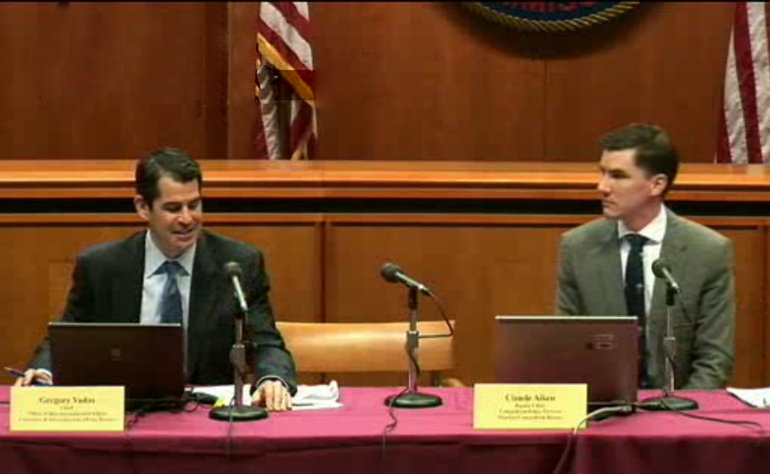Products Category
- FM Transmitter
- 0-50w 50w-1000w 2kw-10kw 10kw+
- TV Transmitter
- 0-50w 50-1kw 2kw-10kw
- FM Antenna
- TV Antenna
- Antenna Accessory
- Cable Connector Power Splitter Dummy Load
- RF Transistor
- Power Supply
- Audio Equipments
- DTV Front End Equipment
- Link System
- STL system Microwave Link system
- FM Radio
- Power Meter
- Other Products
- Special for Coronavirus
Products Tags
Fmuser Sites
- es.fmuser.net
- it.fmuser.net
- fr.fmuser.net
- de.fmuser.net
- af.fmuser.net ->Afrikaans
- sq.fmuser.net ->Albanian
- ar.fmuser.net ->Arabic
- hy.fmuser.net ->Armenian
- az.fmuser.net ->Azerbaijani
- eu.fmuser.net ->Basque
- be.fmuser.net ->Belarusian
- bg.fmuser.net ->Bulgarian
- ca.fmuser.net ->Catalan
- zh-CN.fmuser.net ->Chinese (Simplified)
- zh-TW.fmuser.net ->Chinese (Traditional)
- hr.fmuser.net ->Croatian
- cs.fmuser.net ->Czech
- da.fmuser.net ->Danish
- nl.fmuser.net ->Dutch
- et.fmuser.net ->Estonian
- tl.fmuser.net ->Filipino
- fi.fmuser.net ->Finnish
- fr.fmuser.net ->French
- gl.fmuser.net ->Galician
- ka.fmuser.net ->Georgian
- de.fmuser.net ->German
- el.fmuser.net ->Greek
- ht.fmuser.net ->Haitian Creole
- iw.fmuser.net ->Hebrew
- hi.fmuser.net ->Hindi
- hu.fmuser.net ->Hungarian
- is.fmuser.net ->Icelandic
- id.fmuser.net ->Indonesian
- ga.fmuser.net ->Irish
- it.fmuser.net ->Italian
- ja.fmuser.net ->Japanese
- ko.fmuser.net ->Korean
- lv.fmuser.net ->Latvian
- lt.fmuser.net ->Lithuanian
- mk.fmuser.net ->Macedonian
- ms.fmuser.net ->Malay
- mt.fmuser.net ->Maltese
- no.fmuser.net ->Norwegian
- fa.fmuser.net ->Persian
- pl.fmuser.net ->Polish
- pt.fmuser.net ->Portuguese
- ro.fmuser.net ->Romanian
- ru.fmuser.net ->Russian
- sr.fmuser.net ->Serbian
- sk.fmuser.net ->Slovak
- sl.fmuser.net ->Slovenian
- es.fmuser.net ->Spanish
- sw.fmuser.net ->Swahili
- sv.fmuser.net ->Swedish
- th.fmuser.net ->Thai
- tr.fmuser.net ->Turkish
- uk.fmuser.net ->Ukrainian
- ur.fmuser.net ->Urdu
- vi.fmuser.net ->Vietnamese
- cy.fmuser.net ->Welsh
- yi.fmuser.net ->Yiddish
FCC Ruling on Net Neutrality Polarizes House Panel
Date:2016/2/24 15:49:22 Hits:
By Alisha Green, CQ-Roll Call
February 23, 2016
Signs of a divide over the FCC’s rules were clear during a markup earlier this month in the House Energy and Commerce Subcommittee on Communications and Technology.

Gregory Vadas, chief of the Intergovernmental Affairs Office of the Commission’s Consumer and Governmental Affairs Bureau (left), and Claude Aiken, deputy chief of the FCC Wireline Competition Bureau’s Competition Policy Division, FCC
(TNS) — On a politically polarized Capitol Hill, one of the House panels that often stand out for bipartisanship is becoming fractured by disputes over the effects of the Federal Communications Commission’s controversial net neutrality rules.
It could be evidence of more partisan battles to come for the panel depending on how a court rules on whether the FCC’s net neutrality effort will stand. The FCC says the rules, approved last year, are designed to treat all Web content the same and prevent Internet service providers from charging websites for faster delivery. The issue is just the latest Internet-related controversy that is becoming a challenge for lawmakers especially when they consider regulating different aspects of technology.
Signs of a divide over the FCC’s rules were clear during a markup earlier this month in the House Energy and Commerce Subcommittee on Communications and Technology, when lawmakers approved legislation that would limit related regulations following a heated debate over one of the bill’s potential impacts.
“It seems like we have the same goals here, but for some reason we’re fighting when I think we had a real opportunity to work together,” said subcommittee member Rep. Adam Kinzinger, R-Ill.
The surprising partisan division appeared to have surfaced overnight. A day earlier, Subcommittee Chairman Greg Walden, R-Ore., said he believed the panel was close to reaching a bipartisan deal on two measures: one that would prevent the FCC from regulating the rates charged for broadband Internet and another that would exempt some high-speed Internet providers from certain disclosure requirements.
“I am confident we can find a middle ground that protects consumers while ensuring that no future FCC abuses the new authority granted in the net neutrality proceeding,” Walden said on the first day of the markup. The next day, however, one measure was approved on a party-line vote and another was approved on a voice vote.
It was clear that communications between Republicans and Democrats fell apart sometime after Walden’s initial comments.
The votes came as Capitol Hill awaits a decision by a federal appeals court considering a lawsuit by broadband providers seeking to overturn the FCC’s net neutrality rules, which took effect in June.
Broadband providers argue the rules are an overreach of the agency’s mandate. A three-judge panel of the U.S. Court of Appeals for the District of Columbia Circuit heard oral arguments in December, and a decision is expected sometime soon.
The House GOP, meanwhile, is working to pass legislation to make sure that there are limits on the FCC’s reach if the agency’s rules are upheld in court.
Ranking member Anna G. Eshoo, D-Calif., offered an amendment to one of the bills (HR 2666) that she said would narrow its scope to only preventing the FCC from regulating the rates consumers pay for broadband services — which is what Republican leaders have argued is all the bill would do.
“In actuality the bill is far broader and could eviscerate the FCC’s authority to protect consumers,” Eshoo said.
She suggested the bill as written could actually prevent the FCC from a number of actions such as requiring truth-in-billing practices.
Walden expressed frustration that Republican and Democratic staff had been working on addressing those concerns until communications apparently broke down.
“I don’t know what the heck went wrong,” a clearly frustrated Walden said at the hearing, adding that he thought an agreement was close until amendments appeared from the minority.
Eshoo fired back at the characterization of Democrats ending negotiations by offering amendments.
“I think that it is a slight to suggest that we throw paper around when we offer amendments. An amendment is an idea. And while we may not agree on the idea that is being put forward, we debate them and sometimes that leads to something else,” Eshoo said.
“But I don’t think we should get into an area where we start diminishing each other for offering amendments,” she added. Eshoo’s amendment failed on a party-line vote.
Another amendment from Rep. Doris Matsui, D-Calif., that took a different approach to addressing the concerns raised by Eshoo was also rejected.
After the amendments were rejected, the bill was reported to the full committee on a party-line vote.
The Democrats’ attempted amendments cast light on the deeper divide between the panel’s members over net neutrality.
“I understand full well that the majority has never supported net neutrality,” Eshoo said. “And so whatever is around it is a huge rub.”
Walden was quick to take issue with that comment.
“I just want to clarify for the record: More than a year ago, I and others on this side put forward a net neutrality bill,” Walden said. “So to say we’ve never supported it is a misnomer — it’s not accurate.”
Walden argued the GOP supports net neutrality concepts such as prohibiting blocking, throttling and paid prioritization, but not the FCC’s approach of reclassifying broadband providers as common carriers to enforce those regulations.
“We think the greatness of the Internet has been the lack of federal regulatory involvement in the Internet,” Walden said.
Walden tried and failed to get Democratic support for net neutrality legislation before the FCC voted on its rule in February 2015. Democrats including Eshoo found some details of that proposal to be deal-breakers.
With the FCC’s rules in place for now, it’s unclear how hard House Republicans will push to curb the potential impacts ahead of the court’s decision.
But they may at least find support from Democrats on some of their efforts.
The panel also approved, on a voice vote, a draft bill from Walden that would exempt some broadband providers from disclosure requirements set by the net neutrality rules, which include revealing monthly charges, promotional rates, data caps and network performance. The FCC decided to exempt for another year Internet providers with 100,000 or fewer connections from having to disclose information about their services.
Walden’s bill would permanently exempt providers with fewer than 500,000 subscribers or fewer than 1,500 employees. Walden has said the numbers align with those used by the Small Business Administration.
In a more amicable exchange, one Democrat withdrew an amendment proposed to sunset the exemption after five years, among other changes, and Walden said he would continue working on revising language going into a full committee markup.
It could also be a topic where collaboration is easier since FCC Chairman Tom Wheeler has already expressed some openness to changing the current parameters for exemptions.
At the FCC’s December open meeting, Wheeler did not rule out the possibility of making the exemption permanent for some providers. He said a key part of the decision would be the results of an assessment under the Paperwork Reduction Act to determine the level of burden the disclosure requirements would impose.
The bills approved by the panel now await a markup in the full House Energy and Commerce Committee. That panel’s chairman joined Walden in expressing optimism that any signs of division could be overcome.
“I’m proud of this subcommittee’s bipartisan efforts, and I’m optimistic that we will reach bipartisan agreement on these bills,” Michigan Republican Fred Upton said in a statement.
Leave a message
Message List
Comments Loading...





